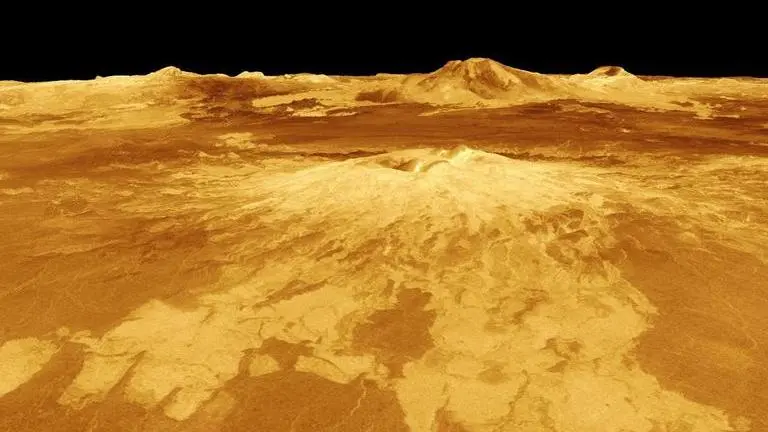Updated 15 August 2022 at 11:45 IST
France opts out of partnership with Russia in developing ISRO's Venus orbiter: Report
France is refusing to cooperate with Russia in developing a spectroscopic device for ISRO's Venus orbiter which was scheduled for launch in December 2024.
- Science News
- 3 min read

India's ambitions to explore Venus might be shelved for long as France is refusing to cooperate with Russia in developing a crucial component for the Indian Space Research Organisation's (ISRO) orbiter. A report by Russian news agency TASS said that this revelation was made by Oleg Korablev, deputy director of the Space Research Institute of the Russian Academy of Sciences.
The component France and Russia were supposed to cooperate for is a spectroscopic device that would study the atmosphere of Venus through spectroscopy, the study of light spectrum emerging from different sources. Besides, some other components of the orbiter were supposed to be contributed by France, however, Korablev said that they can be bought from a new supplier. He further revealed that the key element of the orbiter would be a detector and will be Russian-made.
"We have solved the issue (with components), we are conducting all the preparatory stages, (we are also) looking for suppliers, everything is in order", Korablev told TASS News.
When will the mission launch?
ISRO's Venus orbiter was targeted for launch in December 2024 but the degrading relations between France and Russia due to the Ukraine crisis might delay this mission to early next decade. The aforementioned timeline was chosen because of a brief launch window that opens at the time which could be leveraged to reach Venus with minimal fuel expenditure. If ISRO is successful in launching the mission in 2024, the orbiter would enter Venus' orbit in 2025, otherwise, the wait would extend to 2031 when a similar feasible launch window opens next.
Advertisement
With the Venus mission, ISRO aims to study processes on the Venusian surface, conduct shallow sub-surface stratigraphy, analyse the structure and dynamics of the atmosphere. Studying the interaction of the solar wind with the Venusian ionosphere is also among the objectives.
Talking about the mission, Korbalev said there is no confirmation on the date of launch at time point since the mission has not been approved by the Indian government. "It depends on the Indian partners, so far they haven't fully decided when. And whether it will happen at all. The mission has not been finally approved", the official said.
Advertisement
Unfortunately, Korablev said that Russia would not be able to supply the necessary components on schedule since Roscosmos is not financing the development due to a lack of confirmation from India. During an online meeting on Venus science in May this year, ISRO Chairman S Somanath said that the Venus expedition is expected to cost between Rs500 crore and Rs1,000 crore.
Published By : Harsh Vardhan
Published On: 15 August 2022 at 11:33 IST
